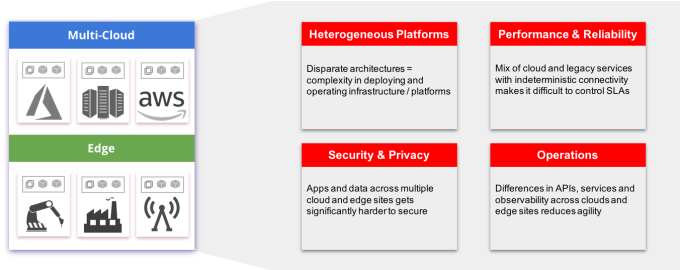
Volterra is an early stage startup that has been quietly working on a comprehensive solution to help companies manage applications in hybrid environments. The company emerged from stealth today with a $50 million investment and a set of products.
Investors include Khosla Ventures and Mayfield along with strategic investors M12 (Microsoft’s venture arm), Itochu Technology Ventures and Samsung NEXT. The company, which was founded in 2017, already has 100 employees and more than 30 customers.
What has attracted these investors and customers is a full stack solution that includes both hardware and software to manage applications in the cloud or on prem. Volterra founder and CEO Ankur Singla says when he was at his previous company, Contrail Systems, which was acquired by Juniper Networks in 2012 for $176 million, he saw first-hand how large companies were struggling with the transition to hybrid.
“The big problem we saw was in building and operating application that scale is a really hard problem. They were adopting multiple hybrid cloud strategies, and none of them solved the problem of unifying the application and the infrastructure layer, so that the application developers and DevOps teams don’t have to worry about that,” Singla explained.
He says the Volterra solution includes three main products, VoltStack, VoltMesh and VoltConsole to help solve this scaling and management problem. As Volterra describes the total solution, “Volterra has innovated a consistent, cloud-native environment that can be deployed across multiple public clouds and edge sites — a distributed cloud platform. Within this SaaS-based offering, Volterra integrates a broad range of services that have normally been siloed across many point products and network or cloud providers.” This includes not only the single management plane, but security, management and operations components.

Diagram: Volterra
The money has come over a couple of rounds, helping to build the solution to this point, and it required a complex combination of hardware and software to do it. They are hoping to help organizations that have been looking for a cloud native approach to large-scale applications such as industrial automation will adopt this approach.

Recent Comments